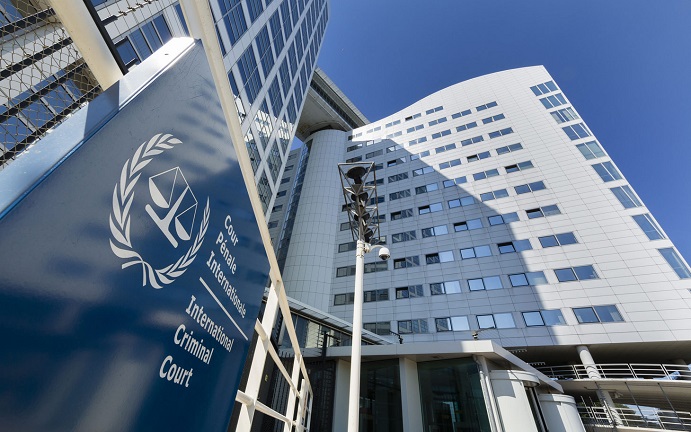Ramona Wadi
Middle East Monitor / April 13, 2021
Israel has opted to reject, rather than defer, the International Criminal Court’s investigation into war crimes in the occupied Palestinian territories. The decision comes after months of the settler-colonial state lobbying world leaders to oppose the ICC decision, even as the Israeli government took its own measures and precautions to protect individuals who might face prosecution.
Last month, Israeli President Reuven Rivlin appealed to European leaders to support “peace” through direct negotiations between Israel and Palestine, saying that the ICC and UN Human Rights Council “are counterproductive for peace and undermine the chances of an agreement.” In effect, any entity that is slightly critical of Israel is “counterproductive to peace” and the only peace that the international community should support, according to Rivlin, is colonial dispossession of the Palestinians, where “peace” exists because there are no longer any people to make peace with.
Israeli Defence Minister Benny Gantz was no better when articulating his support for the government’s refusal to cooperate with the ICC. “It’s not just a matter of the court’s ’technical-legal’ lack of jurisdiction,” he declared, “but a matter of justice and morality, of a strict military ethical code, of truth and falsehood, of a democratic state with strong legal institutions, clear values, rules, and laws, against a blind and unjust decision.”
Let’s be clear that Israel’s institutions exist solely to serve the colonial project. To associate “justice and morality” with this is in itself unjust and immoral. While the ICC leaves much to be desired in terms of justice, Israel’s disquiet is not with the court, but simply because its war crimes are no longer just “alleged”. The latter as used by the international community and human rights organisations has served Israel well, given that “allegations” simply provide the occupation state with the benefit of the doubt. Not any longer, though.
“It is not just the Palestinians who are calling out war crimes, but an entity with international law at the heart of its raison d’être. For a colonial state that has always basked in the safety net of immunity and impunity provided by the international community, the ICC has brought Israel into the deserved, but undesired, spotlight. It’s one that Israel can only counter with its own twisted “security and self-defence” narrative.”
If international leaders bow to Israeli pressure, the farce of negotiations will be strengthened. Israel knows that two-state diplomacy needs a boost, just as it knows that its brand of settler-colonialism gains the upper hand through negotiations as determined by the Oslo Accords. If Rivlin, for example, is pleading for negotiations to take precedence at a time when the de-facto annexation of Palestinian land is taking place — with more on the horizon — then it is clear that Israel is trying to get the ICC embroiled in politics to stave off the war crimes investigation.
Its rejection of the ICC move is not a principled stance by Israel, no matter how much its officials may pontificate. Its courts have proven, time and again, that human rights violations can be given a legal veneer in the exceptional circumstances created by Israel in occupied Palestine. In other words, Israel’s legal framework serves to uphold the colonial project rather than to seek justice. The decision to reject the ICC is a political move, as Israel makes it clear to the world that it wants no interference, legal or otherwise, in the settler-colonial process in which it is engaged.
Ramona Wadi is an independent researcher, freelance journalist, book reviewer and blogger; her writing covers a range of themes in relation to Palestine, Chile and Latin America













